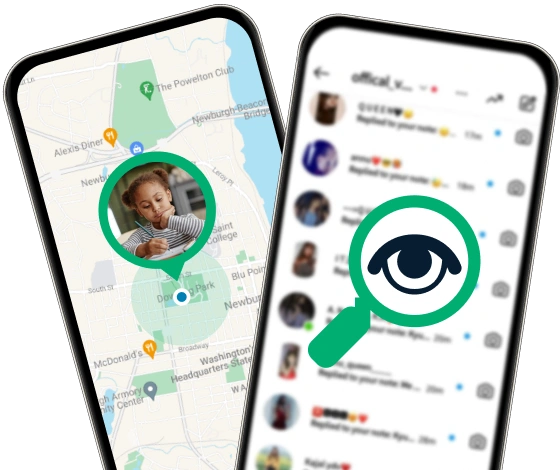Telegram, the third most popular and downloaded application, is adored by many for its user-friendly interface, secure messaging features, and free video and audio calls. Users appreciate its strong security system, offering convenient and safe ways to stay connected with family, friends, and colleagues. Nevertheless, like any other online platform, it is not completely immune to hackers and scammers looking to exploit vulnerable users.
Cybercriminals are increasingly turning to Telegram for underground market activities. Kaspersky’s Digital Footprint Intelligence data reveals that the volume of such posts surged by 53% during May-June 2024 compared to the same period in the previous year.
Given these potential risks, especially in light of recent Pavel Durov’s arrest in France on August 25, 2024, it’s natural for users to question the platform’s safety. That is why we are here to answer all your questions about Telegram’s security and how to protect yourself while using the platform.
In this article, we will talk about the potential risks, safety measures, and practical tips to ensure a secure experience for you, your kids, close relatives, friends, and your loved ones.
What Are Telegram Scams?
Before we start, let us provide you with a detailed answer to the main question: “What are Telegram scams?” Well, Telegram scams are fraudulent schemes that occur on the Telegram instant messaging platform. Telegram app scams can take various forms, but their primary goal is to trick users into giving away personal information and financial details or providing access to their bank accounts, which can be backed up by the Finance Magnates and FXStreet survey, which showed that over 60% of traders who fell victim to scams on Telegram lost funds.
Even worse, the presence of active traders makes the Telegram app attractive to scammers. It is not only about traders; ordinary Telegram users also risk sensitive data leaks and financial losses due to various types of Telegram scams.
Moreover, some individuals on the dark web may decide to use reliable online IM applications like Telegram to communicate anonymously or engage in illegal activities, which can create a false sense of connection between the two.

Want to stay one step ahead of scammers?
Protect your family’s financial well-being and block scammers before it’s too late. Monitor Telegram chats and more with uMobix.
Track Telegram with uMobixWhy Is Telegram Used for Scams?
Why do many hackers and scammers use Telegram for their fraudulent purposes? Why do the cases of Telegram messenger scams so frequently occur among app users?
Here are a few of the most common reasons for answering “Why is Telegram used for scams”.
- Privacy: Telegram uses strong encryption, making it hard for authorities to track scammers. That is what makes the IM app so attractive to cybercriminals and scammers. They can exploit this high level of privacy to carry out their schemes without fear of being easily detected or traced by authorities.
- Large audience: Telegram hookup scams can cover a large audience so that scammers can send their malicious text messages not to one Telegram user but to many people simultaneously, increasing their chances of success.
- Anonymity: When creating a Telegram account, it is not necessary to provide your real name. Instead, you may use a nickname or a fake name and surname. This “element of freedom” gives the Telegram scam a green light. They can easily create accounts without giving real names or phone numbers, making tracing their scamming activities harder.
- Loose moderation: Telegram doesn’t closely watch what people post, so scammers can share their tricks without getting caught right away. Since harmful content isn’t quickly removed, scammers can keep running their schemes longer. It gives them more time to fool people before anyone notices a Telegram scam attack.
- Chatbot capability: Telegram allows chatbots, allowing scammers to use AI to communicate with people for their malicious intentions.
How Do Telegram Scams Work?
Telegram is a great and free-to-use online communication platform that requires a person to use their cell phone number to create an account to use the app. Unfortunately, this makes it easy for hackers to create fake accounts and deceive people. They do not use real names and, in most cases, hide their phone numbers so that the victims can’t contact them in case an incident happens (they share private information, send money to odd addresses, or get their money stolen).
Here are the main tactics Telegram scammers use:
- Impersonalization: Scams on Telegram often impersonate trusted individuals or organizations to gain their trust, using fake profiles with stolen photos and names (it is purposely done to increase trust).
- Fake groups/channels: They might create fake groups or channels that mimic popular investment forums, luring people in with promises of high returns. Those who like easy and fast money will willingly join, often without fully investigating, making them easy targets for Telegram scams.
- Malicious links: Scammers also send malicious links that lead to fake websites designed to steal personal information or install malware. At first glance, these links may seem to be from trusted websites, so when clicking them, a person won’t suspect anything.
- Phishing messages: Additionally, scammers use phishing/catfishing messages, asking for verification codes or personal details, often creating a sense of urgency to pressure victims into acting quickly.
- Giveaway scams: “Great news! You’ve won 1000 dollars! Click the link below to get more details!”, “Claim your $1000 prize!” – have you ever gotten a similar type of giveaway message? Scammers frequently use this tactic when they intend to ask for the victim’s personal information or card details.
Can You Get Scammed on Telegram?
Although Telegram has a high-end-to-end encryption system, it is not 100% protected from a Telegram scam. Scammers use tactics such as impersonation and phishing to deceive users and steal their personal information or money. They often lure victims with promises of high returns, fake giveaways, or job offers that seem too good to be true. To stay safe, it’s essential to be cautious and avoid interacting with unknown contacts or suspicious offers on the platform.
Telegram App Scams List
Well, how to know scammer on Telegram? Here are the most popular Telegram messenger scams you must be aware of:
Telegram Job Scams
Telegram job scams are one of the most popular Telegram scams many people have already become victims of. For this, the Telegram interview scam is frequently used – a fraudulent scheme where scammers pretend to offer job interviews through the Telegram app.
Here is how it happens:
- Scammers post attractive job offers with high pay and flexible hours that grab people’s attention, and as a rule, they become victims of their manipulations.
- They ask you to contact a “Hiring Manager” on Telegram, where it’s harder to track them.
- Once you do it, they will ask you to provide your personal information or request payment to get training courses.
How to avoid it?
- Search for new job opportunities on trustful websites.
- Never invest in suspicious courses, as those who look for a new worker won’t require you to pay for anything.
- Don’t share personal or financial details with someone you haven’t verified as legitimate.
Telegram Dating Scams
It is a classic type of Telegram messenger scams. Many people use dating apps to meet new acquaintances. As a rule, most people do not use real names or nicknames – that is what scammers take for their advantage. Telegram dating scams happen when scammers pretend to be interested in a relationship to gain your trust. However, compared with apps like Bumble, Tinder, or Hinge, where these scams can last a long time, Telegram often involves quick flings or mature content to trick you faster.
How it works:
- They move the conversation quickly, making you feel special and building trust fast (they can even share fake intimate photos with their victim).
- They ask you to cover expenses to see you in real life.
- After receiving the money, the scammer either disappears or continues to ask for more money, giving excuses.
How can you protect yourself from Telegram dating scams?
- Verify a person’s identity through other social media platforms and video calls.
- Never trust fast connections with someone.
- Never send money to someone you have never met in real life.
- If they refuse to video chat, block them and stop conversations immediately to avoid the negative consequences of Telegram messenger scams.
Telegram Crypto Scams
Telegram is also popular with cryptocurrency investors, which makes it a target for scammers running cryptocurrency schemes.
Here is how it happens:
- One common Telegram scam is the “pump-and-dump”, where scammers hype up a cryptocurrency to inflate its value and then quickly sell off their shares, leaving others with worthless coins.
- Alternatively, scammers can manipulate people interested in cryptocurrencies to get access to their crypto wallets and transfer their cryptocurrency to their own wallets.
- They use fake links that mimic legitimate crypto platforms, stealing login credentials or funds.
- Scammers may mimic trustful crypto traders or companies to gain trust and demand funds from their victims.
How to avoid crypto Telegram app scams?
- Verify the identities of people who look suspicious before answering their messages.
- Never share your personal information or access to your crypto wallet with other users.
- Use official websites and trusted apps for crypto transactions.
- Never click links sent from unknown users through the Telegram app.
- Enable the 2FA to your crypto accounts.
“Copycat” Scams
People love Telegram because of its freedom to share thoughts and emotions and find people with the same life problems/interests as you. Scammers frequently use it to their advantage. They create copies of popular Telegram groups, tricking people into thinking they’re legitimate.
How “copycat” Telegram scams happen:
- Scammers create Telegram groups that look like legitimate (real) ones, using similar profile pictures, names, and messages to lure their victims.
- The channel seems active, with many “users” chatting about quick money schemes, prizes, giveaways, special promotions, discounts, or free prizes.
- Those admins of fake Telegram groups may contact you directly through DM asking for personal information.
How to protect yourself from it?
- Never provide personal information to strangers.
- Better not to participate in too-good-to-be-true offers.
- Look for the number of subscribers and when the first message was created on the Telegram channel. If it was recently created, it may be a fake Telegram group with malicious intentions.
Tech Support Scams
Scammers can use Telegram to reach legitimate tech support agents.
How do tech support Telegram scams work?
- They search channels and groups for certain words and phrases, then pretend to be from a company.
- They’ll start by offering help but soon ask for sensitive information or try to get you to pay for “premium” support.
How to avoid them?
- Stay aside from any account that reaches you and offers tech support.
- If you need tech support, contact the company using the contact information provided on their official website.
- Block suspicious Telegram accounts.
- Check whether the account’s nickname matches its screen name. If it doesn’t, it may be a Telegram scam.
“Friend in Need” Scams
This type of Telegram scam is one of the most frequent ones. Everyone needs a friend they can rely on and share their worries.
How does it happen?
- Scammers use this weak person’s point to their advantage and, pretending to be someone you know, require you to send them money.
- A scammer imitating your close friend or relative tells you about an emergency, like losing their phone, and asks you to send money quickly (through a wire transfer).
How can you avoid “friend in need” Telegram scams?
- When you get a message from a person who pretends to be your close friend, do not answer them. Better contact them through a phone call to confirm the situation.
- If the story sounds odd to be true, think twice before acting.
- A person who really needs money will call you, not write text messages, and ask you to send them money through a wire transfer – the first red sign of a classic Telegram scam.
Don’t let scammers target your loved ones!
Your family member may fall for a scam. Catch these messages before trouble strikes with uMobix. Remote monitoring is easy.
How to Identify Fake Telegram Account?

Although becoming a victim of Telegram scams is a problem many people encounter daily, there are a few tricks that will help you identify fake Telegram accounts and protect yourself from this kind of online danger that can happen to you.
So, how to identify fake Telegram account?
- Ask yourself whether their profile pictures are real ones. If uncertain, use a reverse image search to verify whether the same image is used elsewhere online.
- Fake Telegram accounts, as a rule, do not have frequent or limited activities.
- Avoid clicking on URLs in the text messages sent from strange contacts you do not know.
- If a phone number or email is provided, check it yourself to make sure it’s real. Scammers often use fake contact details.
- Never send money to people who pretend to be your friends, colleagues, or close relatives. They will ask you directly or at least phone you if they need it.
- Always trust your guts. If something seems odd, it is better to block the user.
Phishing Links Scams
Telegram scammers use phishing Telegram app scams to trick people into clicking on harmful URLs. These links often lead to fake websites that look real and ask for login details or personal information. This type of Telegram scam relies on creating a sense of urgency to make the victim click the link without carefully checking its authenticity.
How does it work?
- Some scammers use bots on Telegram to run phishing scams.
- Others use special malicious links, which, once clicked, take you to a fake website designed to look like the real one.
- In some cases, clicking the link can also download malware onto your device, which can further compromise your security.
How to avoid it?
- Never click on unknown links.
- Don’t trust bots that claim to be official employees, especially if they ask for sensitive information.
- Enable 2FA on your accounts to add an extra layer of security.
- Never share personal or financial details through Telegram.
Fake Surveys Scams
Fake surveys are also one of the manipulations many scammers use to deceive their victims.
How does it happen?
- Scammers offer prizes to attract victims, but the real goal is to steal personal information.
- After finishing the fake survey, victims might be asked for their Telegram username or email.
- Scammers may use malicious links, which, once clicked, lead to the loss of personal data/money.
How to avoid it?
- Do not participate in surveys.
- Never click links that seem suspicious.
- Be cautious of surveys offering prizes or rewards.
- Keep your device protected with up-to-date security software.
Fake Telegram Admins Scams
Fake Telegram admins often pretend to be trusted figures to win your trust. They might say they’re offering help or exclusive info, but they’re out to steal your details or money. Always check who they are and never give out sensitive information.
How do they work?
- They ask for personal details, login credentials, or money under the guise of administrative tasks.
- They claim to provide assistance or special information to gain your trust.
How to avoid it?
- Check if the admin is really who they claim to be by confirming their identity through official channels.
- Don’t share personal details or money to avoid becoming a victim of a Telegram scam.
“Classiscam” Schemes (Fake Classified Ad Scams)
“Classiscam” schemes are Telegram app scams where fraudsters impersonate well-known companies or services to trick people.
How do they work?
- They often use fake websites or emails that look real.
- Victims are usually asked to enter personal information or make payments.
- Scammers create fake ads for products like cameras, phones, etc., on classified sites, which direct you to communicate through Telegram for the deal. When you message, you interact with a bot that steals your personal information.
- They send a link that looks like a legitimate site (e.g., Facebook, Marketplace) and ask for personal and credit card information to complete the sale.
How to avoid it?
- Be attentive when you are asked to communicate via Telegram instead of established channels.
- Never provide your private or credit card information if you notice anything suspicious.
- Check that the website link is correct and matches the official site of your platform.
Telegram Bot Scams
Many scammers use Telegram bots to help them with their malicious intentions. They include admin scams, phishing scams, and romance Telegram scams.
How do they work?
- They use Telegram bots to contact their victims, often appearing friendly.
- They promise rewards or services to attract users.
- Bots ask for personal or financial information.
- They send links to fake websites to steal data or install malware.
How to avoid it?
- To stay safe, be cautious about interacting with unknown bots and verify any personal information or payment requests.
How to Know Scammer on Telegram?

Well, here is a short but detailed list of features you should pay attention to detect scams on Telegram:
- Suspicious profiles with odd or no profile picture on them.
- You are required to provide personal information or click on a special link to get more details, obtain an order, confirm the win, etc.
- Communication with someone who refuses to communicate in real life or through Telegram video chats.
- A person uses urgency or threats to manipulate you.
- You are asked for personal information, money, or account access.
- Odd messages about giveaways or prizes you’ve won (especially if you did not participate in any).
- Poorly written messages or inconsistent language.
- Promises of large sums of money or deals that seem too good to be true.
- Sender’s contact information does not match the details provided on the company’s official website they claim to represent.
- They ask you to help because of emergencies (especially from the name of your friend, relative, or colleague).
How to Report Telegram Scams?
Telegram has an official bot channel called “No to Scam,” where you can report any Telegram scams on the platform. Here’s how to report scams on Telegram:
- You must have a Telegram account to report a Telegram scam. Open it.
- Go to the chat section and look for the “@notoscam” bot. The bot is named “Report Impersonation” and has a verified checkmark. You can also use a link to move to it instantly.

- Start by tagging the scammer’s account or channel in the chat window, and then briefly explain why you’re reporting them.
How to Avoid Telegram Scams?
So, if you want to protect yourself from Telegram scams, here are a few important things to take into account:
- Stay aside from text messages from unknown contacts, especially those asking for personal information or money.
- Do you feel pressure or urgency in the text messages? It is a common tactic for Telegram scams.
- Be skeptical of offers that promise unrealistic returns or rewards.
- Legitimate companies will never ask you about providing sensitive information via Telegram or any other IM app.
- Does your friend ask you for immediate financial support? Call them and clarify the situation.
- Watch for poor grammar, spelling errors, or inconsistencies in the messages or profile.
Protect Your Children from Telegram Scammers with uMobix
uMobix is the best parental control application that will help you protect your kid from any online danger, including Telegram scams that can happen to them. Once the Telegram spy app is on their cell phone, you will be able to track their online activities instantly. So, you will see all the text messages your kid receives and sends when using any social media platform or instant messaging app like Telegram.
With the Telegram monitoring app from uMobix, you, as a parent, will be able to:
- Access contact details of the users your kid chats with.
- Catch content from all Telegram chats.
- View channels to which your child is subscribed to protect them from online predators.
- Track Telegram activities in real time via screenshot reporting.
- Read sent, received, and even deleted text messages to catch Telegram app scams. The best part? You will do it without them knowing.

If you suspect unusual activity that can harm your kid, no worries. You can easily block the contact so that they won’t be able to contact your kid again. In an emergency, you can also block their device completely, ensuring no sensitive data will be shared with strangers.
Conclusion
As the Telegram app continues to evolve, so will scammers and fraudsters. Therefore, it is important to know how to detect Telegram scams and be ready to respond if you encounter one. Following the useful tips and recommendations discussed in this review along with uMobix, a reliable Telegram tracker, you and your dearest and nearest can safely use Telegram and avoid falling victim to a Telegram scam.





